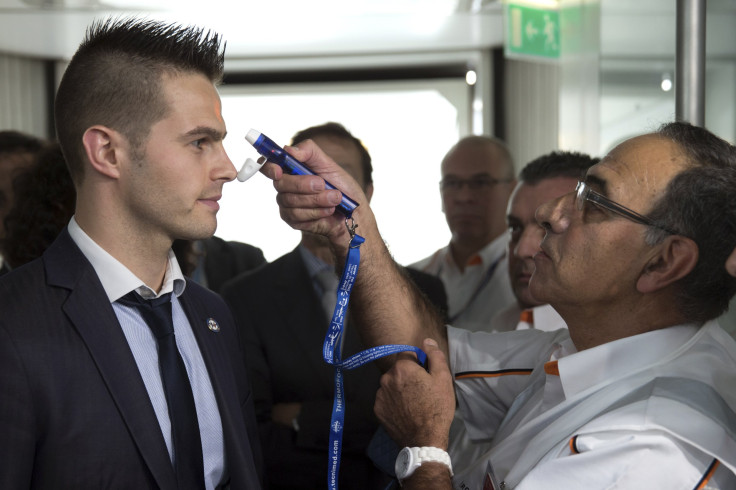Ebola Spreads To Europe: Is EU Doing A Better Job of Containing Ebola Than The US?

The World Health Organization said it had failed to contain Ebola, while U.S. lawmakers in Washington, D.C., called this week for the resignation of Tom Frienden, director of the Centers for Disease Control and Prevention, as health officials examined a handful of new potential cases. It is clearly a bad time to be a government leader fighting Ebola, and yet the Obama administration and United Nations' leaders might find solace in one truth: At least they are not Europe.
The Ebola outbreak that has ravaged West Africa and spread to Europe and the United States has left the fractious European Union scrambling to come up with a contingency plan. Leaders can't agree on border screening policies or travels bans. Even Europe's unwillingness to fight Ebola at its source in West Africa has drawn criticism from health care workers. While the U.S. has pledged to send 3,000 military troops to the outbreak's epicenter in Guinea, Liberia and Sierra Leone, Europe has done little to keep the virus from spreading beyond those borders, according to critics.
Europe is “more concerned about its border controls rather than what it should be doing to contain the spread of the disease in West Africa,” Natalia Alonso, Oxfam’s deputy director of advocacy and campaigns, said in a statement Thursday. “Europe needs to get serious by deploying more medical staff and equipment as well as military personnel in the next two weeks. Otherwise, the EU will miss a very narrow window of opportunity to halt this epidemic.”
Claus Sørensen, director-general of the EU’s Humanitarian Aid and Civil Protection agency, said that European nations, as well as many around the world, have been “behind the curve.”
It's not that Europe is ignoring the Ebola crisis; the continent just isn't doing enough, world leaders said. The European Union has pledged $226 million, and individual member states are providing their own range of support. European Union health ministers Thursday called for an immediate review of screening for Ebola at some West African airports after a plane in Madrid was temporarily isolated over a suspected Ebola case. That same day, Spanish authorities reported four new patients with suspected Ebola symptoms, including a Spanish priest who had traveled to Liberia and a passenger who became ill while on an Air France flight from Lagos to Paris, according to the Independent.
“What we really need is people," Britains's foreign secretary Philip Hammond told the Christian Science Monitor. "Specifically: doctors, nurses, and medical staff to man the six-week shifts involved in running field hospitals."
President Barack Obama has urged European leaders to take further action to stop Ebola. He telephoned his counterparts in Britain, France, Germany and Italy this week “to make sure that we are coordinating our efforts and that we are putting in a lot more resources than, so far at least, the international community has put into this process,” he said.
“This is not simply charity,” he said. “Probably the single most important thing that we can do to prevent a more serious Ebola outbreak in this country is making sure that we get what is a raging epidemic right now in West Africa under control.”
EU health ministers gathered in Brussels Thursday to form a plan against the outbreak but couldn't reach an agreement on ordering screening for the highly infectious disease in every country. Instead, they agreed to increase coordination between the 28-member states by providing information and questionnaires for passengers traveling from affected areas.
France will start Ebola screenings Saturday at Paris Charles de Gaulle Airport, only the second EU nation to do so, follwing the United Kingdom. The U.S. began similar airport screenings last week. British Prime Minister David Cameron called this week for more Ebola screening within other European countries, saying they "must do more" to stop the deadly outbreak, according to BBC News.
There have been at least 10 evacuations of Ebola-infected patients from Africa to Europe, eight of those within the European Union in recent months. The World Health Organization counts eight confirmed cases of Ebola in Europe, including several cases in Germany and Netherlands. There have also been at least a dozen potential Ebola cases across Europe.
"If protocols are being followed, it's highly unlikely that an outbreak could happen in the EU. But again, zero risk doesn't exist, particularly in a hospital, where staff deal with sick people," European Commission spokesman Frederic Vincent told CNN.
Spain began monitoring dozens of people for Ebola after a nurse's assistant became the first person known to have contracted the highly contagious virus outside Africa in the current outbreak. Two Spanish missionaries who were brought back to Madrid for treatment after contracting Ebola in West Africa both died of the illness.
"Ebola is not a problem of Spain. It is not a problem of the United States," said Antonio Andreu, director of the Carlos III Hospital in Madrid. "It's a global problem."
There have been about 9,000 cases of Ebola and 4,493 deaths since the outbreak started in March.
© Copyright IBTimes 2024. All rights reserved.






















